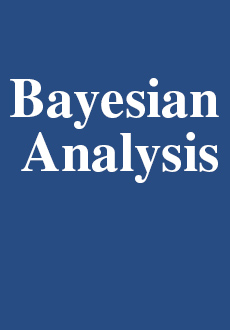Abstract
Hidden Markov models (HMMs) and related models have become standard in statistics during the last 15--20 years, with applications in diverse areas like speech and other statistical signal processing, hydrology, financial statistics and econometrics, bioinformatics etc. Inference in HMMs is traditionally often carried out using the EM algorithm, but examples of Bayesian estimation, in general implemented through Markov chain Monte Carlo (MCMC) sampling are also frequent in the HMM literature. The purpose of this paper is to compare the EM and MCMC approaches in three cases of different complexity; the examples include model order selection, continuous-time HMMs and variants of HMMs in which the observed data depends on many hidden variables in an overlapping fashion. All these examples in some way or another originate from real-data applications. Neither EM nor MCMC analysis of HMMs is a black-box methodology without need for user-interaction, and we will illustrate some of the problems, like poor mixing and long computation times, one may expect to encounter.
Citation
Tobias Rydén. "EM versus Markov chain Monte Carlo for estimation of hidden Markov models: a computational perspective." Bayesian Anal. 3 (4) 659 - 688, December 2008. https://doi.org/10.1214/08-BA326
Information





